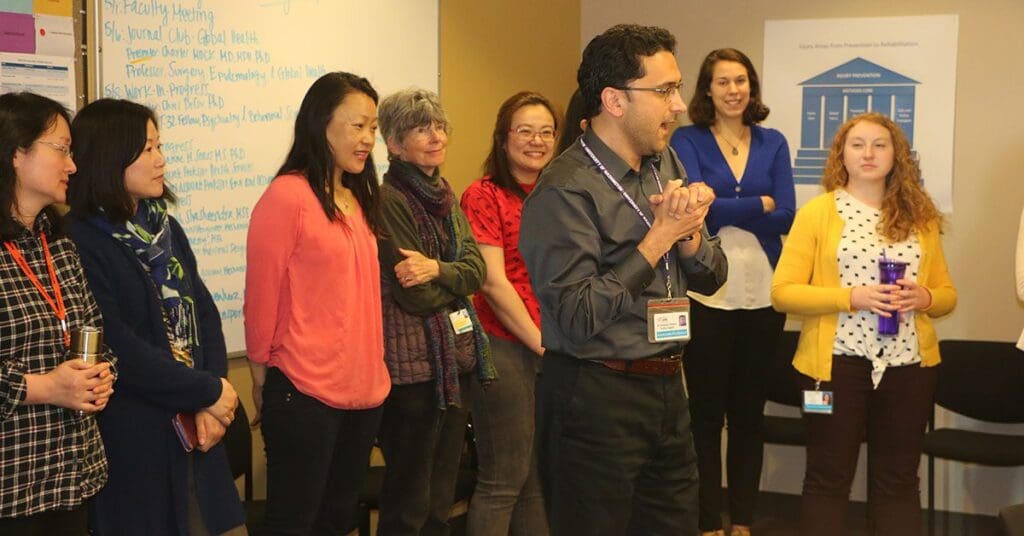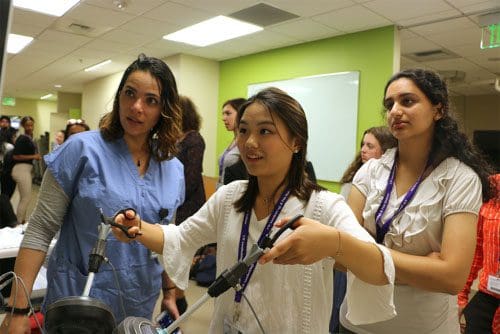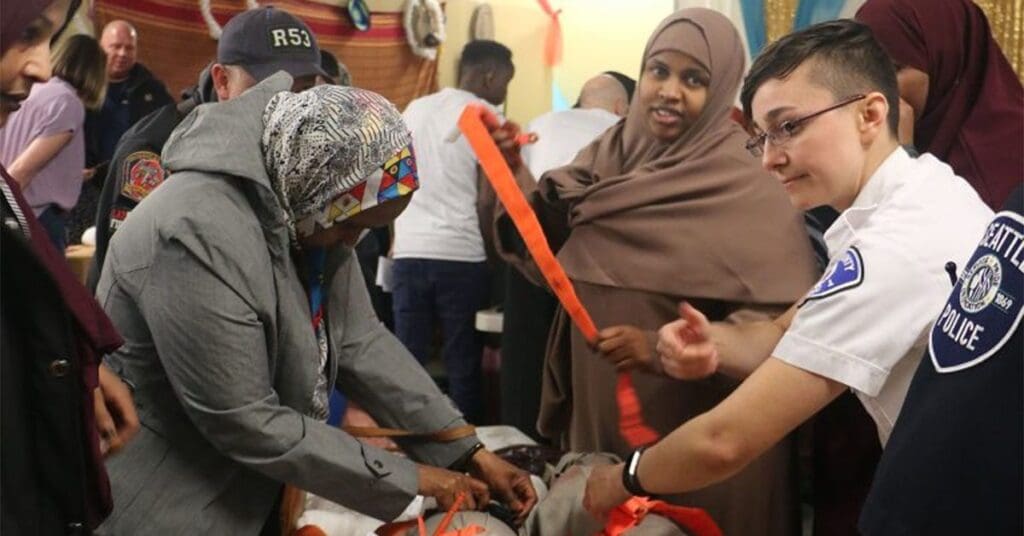Founded in 1985, the Harborview Injury Prevention & Research Center (HIPRC) is the only injury center west of Iowa in the nation — and it leads the nation in research, education and practice of injury and violence-prevention healthcare equity.
This injury and violence prevention work is wide ranging and includes reducing global injury; increasing treatment and care for injury patients; supporting safe transportation methods; researching traumatic brain injuries; mitigating violence on the individual, family and societal levels; and decreasing firearm injury and death.
The center aims to turn interdisciplinary research into practice by training injury control scientists and educating public health officials and policymakers. More than 30 UW departments and organizations are represented in the center, along with individuals from other institutions, all working to protect populations most at-risk of preventable injury.

Dr. Ali Rowhani-Rahbar, co-director of the Firearm Injury and Policy Research, speaks with several members of HIPRC (this photo was taken before the pandemic).
“It’s a welcoming environment where people from different departments and schools get to work together,” says Monica Vavilala, MD, a board-certified anesthesiologist and director of HIPRC. “It’s an expectation that we collaborate; we do better science when we are interdisciplinary.”
Prioritizing healthcare equity
Healthcare equity has been and remains the bedrock of the injury center’s work.
What started as a symposium on healthcare equity in 2017 has become Health Equity Across the Lifespan (iHeal), a revolutionary initiative aimed at dismantling bias and rooting out disparities in healthcare.
“iHeal is based on the concept that we need to have equity in the work we do and the way we treat each other,” Vavilala says. “It needs to permeate our cores, training, research and outreach — and our culture.”
Through the program, HIPRC provides trainings for staff and faculty, along with community resources. The initiative also created an advisory board that counsels the center on what research questions are most prevalent for the community, enabling researchers to focus their work on the needs of the public.
Currently, the team is conducting grant-funded research to create a culturally sensitive data collection instrument that will acknowledge racism and other underlying social challenges in society.
Training future physicians
HIPRC’s commitment to education and mentorship spans high school summer courses to postdoctoral training and public health practitioners.
Applicants from across the country vie for a spot in the center’s INSIGHT summer programs, intensive multi-week courses where high school, undergraduate and graduate students learn about public health and biomedical research. This past year, facing the coronavirus outbreak, HIPRC revamped their entire curriculum in order to provide the same quality of education online.

INSIGHT high school program students try out a surgery simulator during a field trip to UW WISH (photo taken before the pandemic).
“Building careers for young people is really important, so we’re staying innovative around that.” Vavilala says.
The center is also home to the only National Institute for Child Health and Human Development–funded pediatric injury T-32 program, which provides five years of funding for fellows training to become pediatric injury researchers.
Connecting to the community
At the heart of HIPRC’s work is responding to community needs.
Over the past year, HIPRC held more than 80 events, including prevention campaigns on window falls, suicide prevention and opioids, and facilitated conversations between law enforcement and historically marginalized groups.
The center also helped host Stop the Bleed emergency training for the local Somali community, launched the state-wide coalition Return to Learn to aid children who have experienced traumatic brain injuries, and testified for updated booster seat regulations in the state.

Several members from HIPRC, the Somali Health Board, City of Tukwila, and Seattle and King County Emergency Medical Services try Stop the Bleed techniques (this photo was taken before the pandemic).
Looking ahead, Vavilala hopes to build on the center’s partnerships across UW Medicine and deepen the center’s connection to the Pacific Northwest.
“I’ve sent a strong message that the work continues,” she says. “Despite the pandemic, we continue to work together to do good work.”


